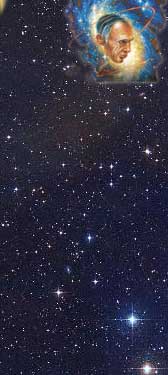|
|
|
||||||
|
|
|
|
|||||
|
|
|
There were still pulp magazines in those days of the early '40s, and I used to be a regular at our corner magazine store, reading what I could not afford to buy, buying what I could of the science-fiction magazines. There were Startling Stories, Thrilling Wonder Stories, Weird Tales (still running!), Planet Stories, Famous Fantastic Mysteries, Fantastic Novels, others I've forgotten. It became my ambition to become a science-fiction pulp writer. But this was not all that I read. Jack London, Ambrose Bierce, O. Henry, Stephen Leacock, Homer, Virgil, Dante, Horace, a great undisciplined mass of books, mostly borrowed from the town library. The list of the influences could go on endlessly, if I could only remember.
I learned from my cousin Bud to play the guitar. Not well, but loudly, and in time. From this I graduated to high school dance bands, for which I got paid. I liked the experience of having my own money, of not having to rely on an allowance from my parents. It seemed a mark of accomplishment rather than a necessity of life. The Depression passed us, unnoticed by me. My parents were always frugal, but my sister and I lacked for nothing. I entered the dating world, was often able to borrow the family car (always a new Plymouth every year or so -- my father thought there was something flashy about the GM brands). Every summer in those years, when I was between the ages of six and sixteen, my parents would pack us up and drive the 300 miles or so to my Uncle Moses' farm in Keene. There was no Northway then, no super-highways, so we wound our way up on local roads and highways, passing through places like Mechanicsville and Saratoga Springs, finally reaching Keene, and Keene Valley and the long drive up Spruce Hill, past Bertha's Cabins, to Moses' 200 acre farm bordering on the Adirondack Wilderness. Moses was my mother's brother, the only one of seven brothers who did not go into law or medicine. He was basically a dairy farmer, though he had corn and grass, and there was a vegetable patch in the back, and pigs to one side. He had a herd of twenty or so cows, and bought milk from local farmers in the area. He was the first in the North Country (as it was called) to put in pasteurization, and could have made a good business out of it, if he had been a businessman rather than a hard-working tinkerer. My friend and idol in those years was my cousin Bud (Bernard). He was Moses' youngest son, about ten years older than I. He delivered the milk that Moses pasteurized. And I delivered it too, standing on the running board of the pickup so I could do it faster and get finished in time for Bud to attend his softball game in town, or go on one of his dates in the early evening. Moses' elder son, Steve, lived in town, served on PT boats during the war, killed himself in a motorcycle accident. His sister Cecilia, whom we all called Sis, worked as a nurse at the local infirmary. She was married to Si, a tall, black-haired, part-Indian fellow who raced trotting horses. |
|
|
|||
 |
|
||||||
 |
|
||||||
|
|
|
||||||